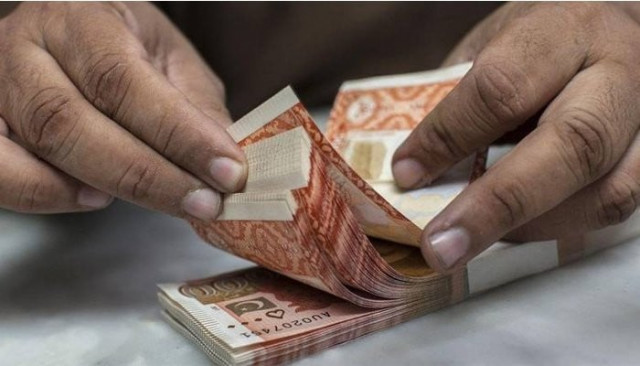First-ever T-bill buyback targets Rs500b, cuts debt costs
Govt aims to use excess funds to lower interest rates, manage domestic debt more effectively

In a first, the government has announced plans to buy back treasury bills (T-bills) worth Rs500 billion on Monday.
The move aims to reduce expensive domestic debt and cut interest payments, following the securing of the relatively low-cost $7 billion International Monetary Fund (IMF) loan programme.
The buyback sends a strong signal to financial markets, indicating the government has surplus funds.
The Ministry of Finance plans to use this excess to rapidly lower interest rates, manage domestic debt more effectively, and create fiscal space to support economic activity.
Speaking to The Express Tribune, AKD Securities Director of Research, Muhammad Awais Ashraf, said, “A 1% reduction in the interest rate would cut interest expenses by a massive Rs470 billion annually.”
To date, the rate of return on 1-year T-bills has already dropped by 9 percentage points to 14%, down from a recent peak of 23%, following the central bank’s key interest rate cut, as inflation returned to single digits in August for the first time in three years.
Pakistan’s total debt stands at Rs69.6 trillion, including Rs47.7 trillion in domestic debt. Of the domestic debt, approximately Rs31 trillion comes from commercial banks, which have invested in T-bills and Pakistan Investment Bonds (PIBs), he said.
The buyback will also help commercial banks reduce their borrowing from the central bank, which has surged to a record Rs12 trillion. Banks had borrowed heavily from the central bank to lend to the government at higher rates, reaping significant profits from the difference, he added.
Topline Securities CEO, Muhammad Sohail, said the government’s decision to repurchase its T-bills for the first time is a significant development, reflecting an improved cash position and bringing various positive implications for the economy.
The sharp decline in yields—with 1-year T-bills falling from 23% to around 14%, and the 10-year bond from 17% to 12.7%—indicates a quicker-than-expected easing of interest rates. This strategic buyback will likely enhance liquidity in the money market, driving yields lower, and improving the government’s debt metrics, he explained.
By repurchasing its own debt, the government can optimise its debt profile and potentially reduce the overall debt ratio.
This move also demonstrates confidence in the fiscal position, benefiting both short-term money market operations and long-term fiscal sustainability. Lower yields could signal greater investor confidence, encouraging private-sector investment and stimulating economic growth, he said.
T-bill yields have fallen by nearly 500 basis points in under three months, driven by strong central bank profits and improved fiscal discipline, which enhanced government cash flows and liquidity in the money market. These developments are reducing the need for borrowing and driving yields lower, signalling a more stable economic outlook, Sohail added.
On Friday, the government invited bids (through Bloomberg) for a Rs500 billion buyback auction of Market Treasury Bills (MTBs).
The auction breakdown shows that the government plans to repurchase Rs100 billion worth of T-bills issued on June 13, 2024, maturing in December 2024, and another Rs100 billion of T-bills issued on December 14, 2023.
Additionally, it aims to repurchase Rs150 billion worth of sovereign bonds issued on June 27, 2024, and Rs150 billion in bonds issued on December 18, 2023.
The government reserves the right to reject bids without explanation.
Ashraf further noted that government liquidity has improved significantly, after the central bank reported a record-high profit of Rs4 trillion in the fiscal year ending June 30, 2024.
Of that, Rs2.7 trillion was transferred to the government, as per existing regulations.
He added that this exercise might also prompt the central bank to further cut its key interest rate to support business and economic growth. The bank has already reduced rates by 4.50 percentage points since June 2024, bringing the current rate to 17.5%. Research houses predict the rate may drop to 14-15% by the end of the fiscal year on June 30, 2025.
The buyback could also encourage commercial banks to offer new financing to the government in future T-bill auctions at reduced interest rates.
Additionally, the increased availability of financing may push banks to offer more loans to the private sector, helping them raise their advance-to-deposit ratio (ADR) above 50% to avoid facing additional taxes of up to 19%.



















COMMENTS
Comments are moderated and generally will be posted if they are on-topic and not abusive.
For more information, please see our Comments FAQ